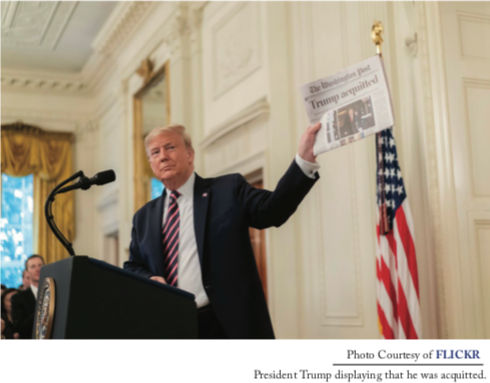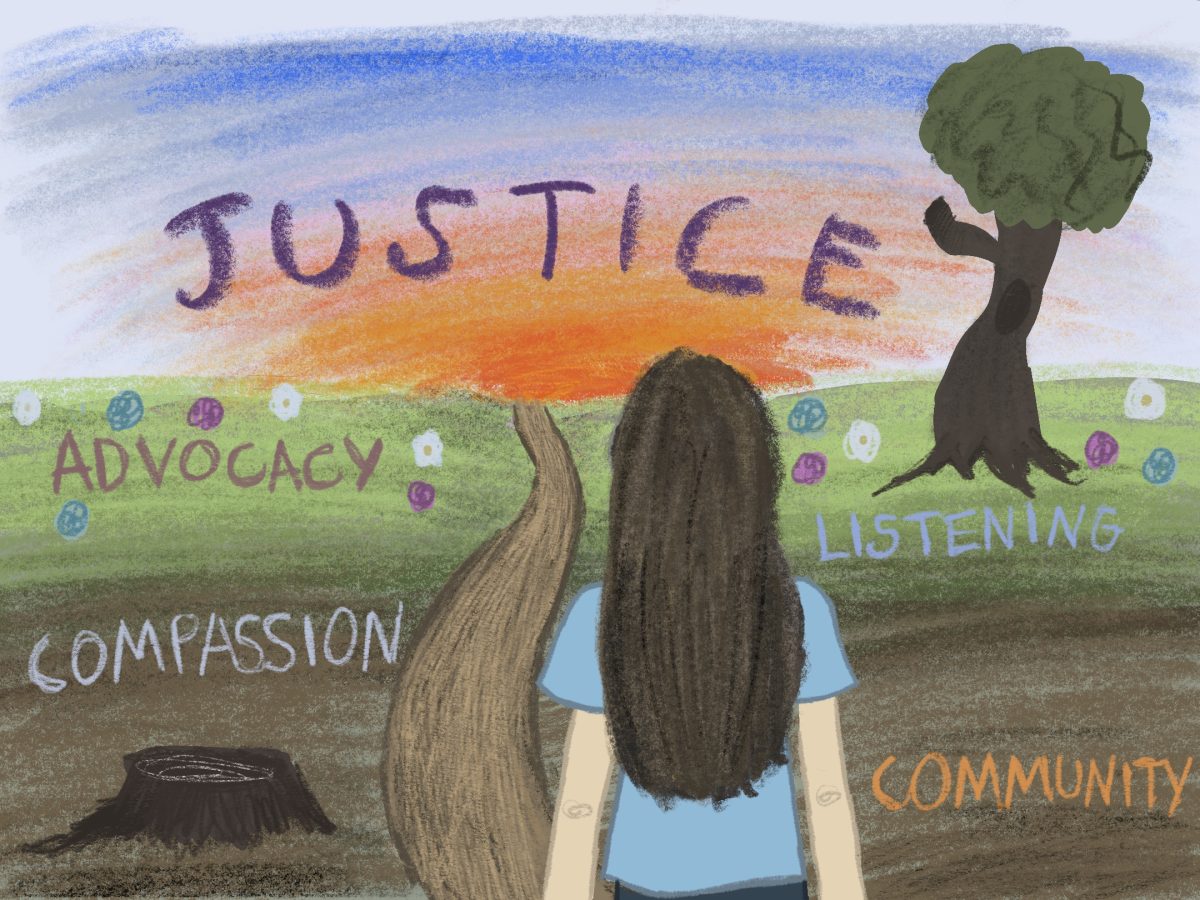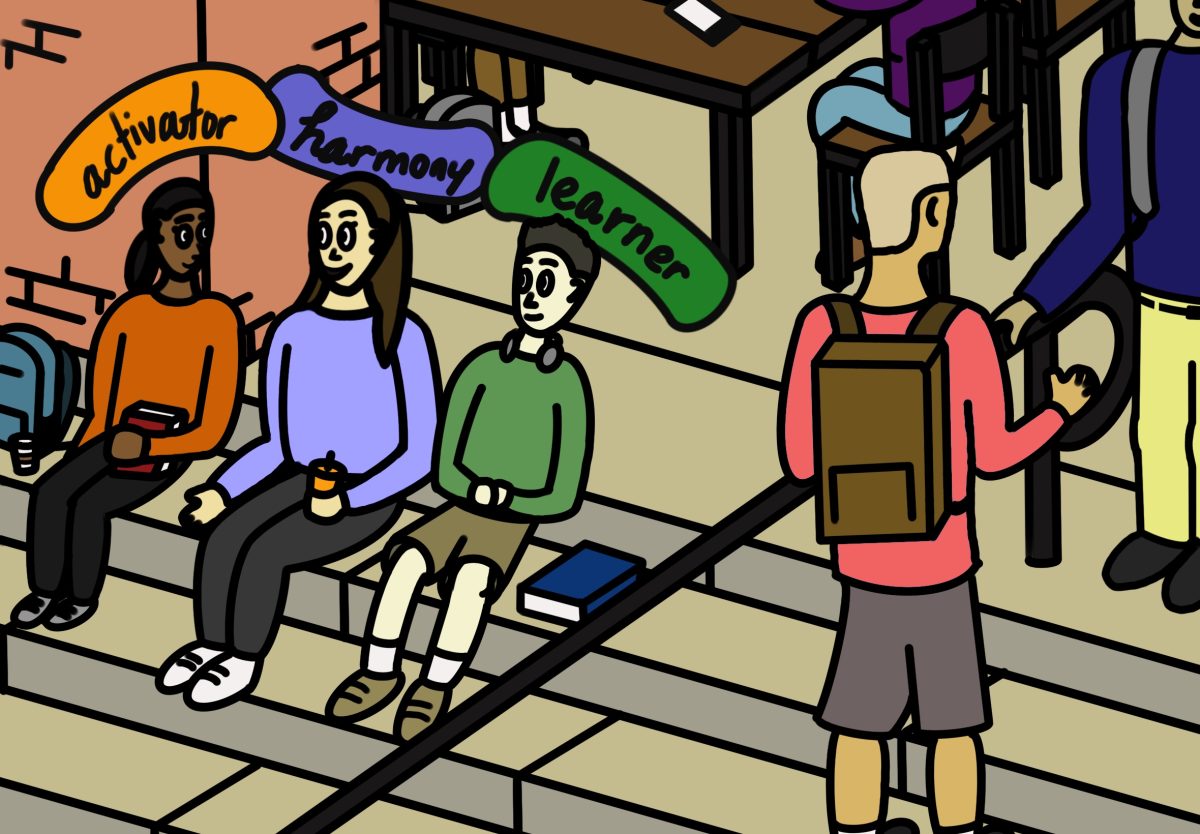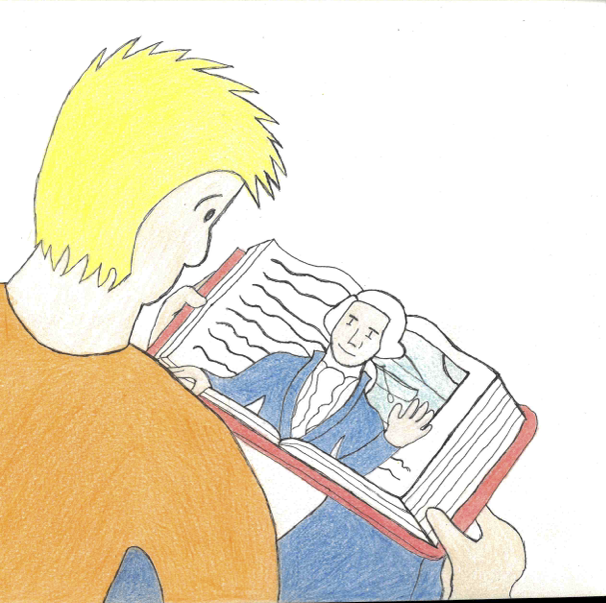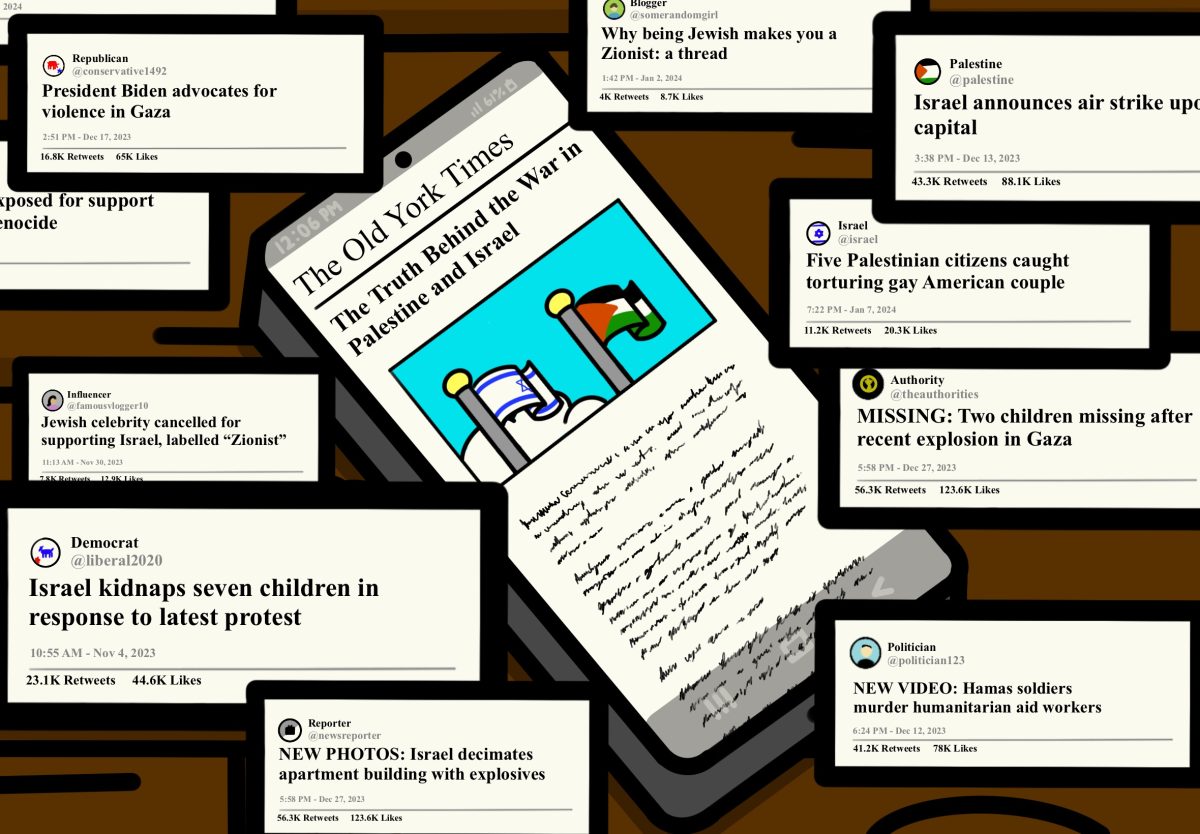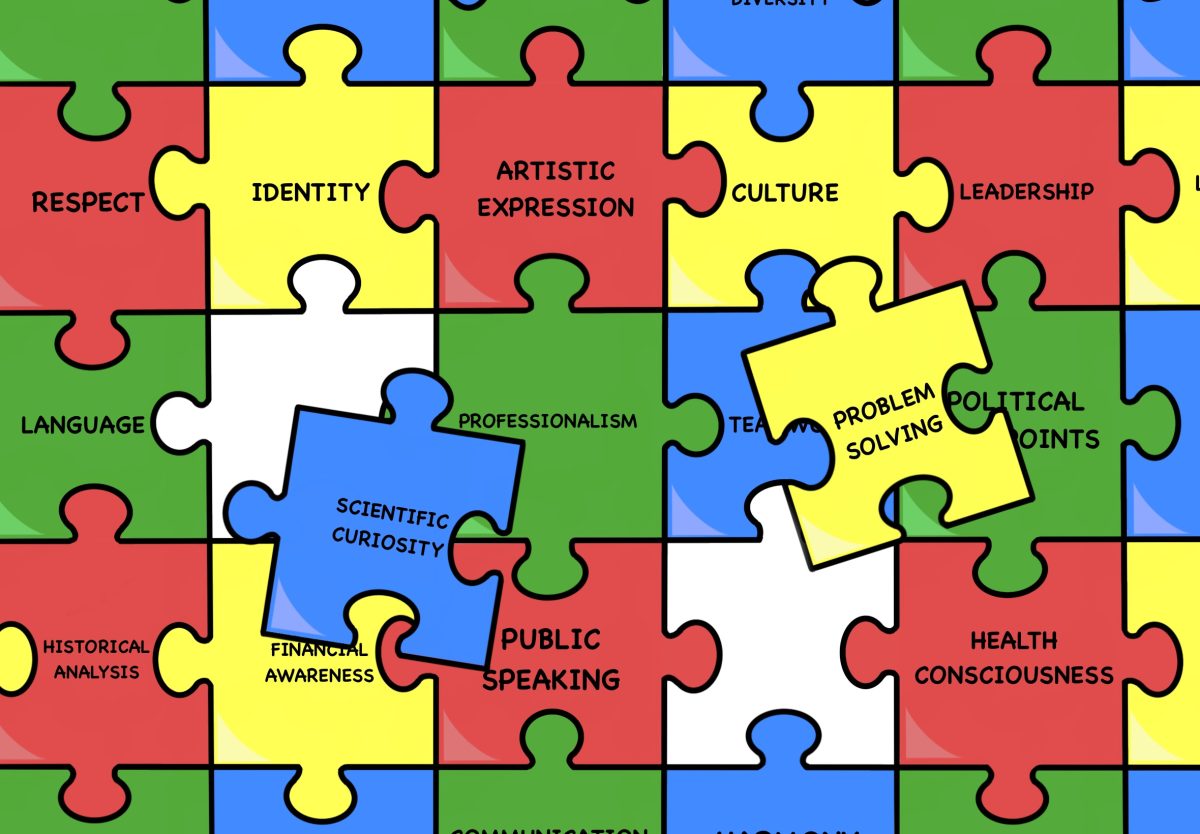“ACQUITTED,” read the USA Today issue that President Trump held aloft as he stood from his spot at the head table. “Trump Acquitted” read the next one he held up: The Washington Post. I had been invited to the 68th National Prayer Breakfast with a contingent of eighty other college students from around the country and world. Now we sat together, amongst political leaders and people of faith from all over the world, feasting on bagels and quiche, watching the president open his appearance with this newspaper bit, to a mixture of applause, laughter, and silence from the audience.
Before Trump rose to deliver his address at the 68th National Prayer Breakfast, holding his newspapers overhead, the keynote speaker, Harvard Professor, Arthur Brooks, offered remarks on the famous words of Jesus: “love your enemies.” Brooks’s words seemed especially apt, with President Trump on his right and House Speaker Nancy Pelosi on his left, just two days after Trump’s (potential) handshake snub and Pelosi’s speech-tearing at the State of the Union Address. Political tensions were high—at the head table, in Washington, and in our country. It seemed like the perfect time to hear a brilliant professor oppose the contempt he believes is tearing our country apart in favor of the love he believes can save it.
However, the president did not embrace Arthur Brooks’s message. In the first thirty seconds of his speech, Trump interrupted and said, “Arthur, I don’t know if I agree with you.” In the remarks that followed, Trump lamented the wrongs he believes have been inflicted on him: “As everybody knows, my family, our great country, and your President have been put through a terrible ordeal by some very dishonest and corrupt people.” Next, he took a shot at some of his political opponents: “They know what they are doing is wrong, but they put themselves far ahead of our great country… I don’t like people who use their faith as justification for doing what they know is wrong. Nor do I like people who say, ‘I pray for you,’ when they know that that’s not so.”
President Trump’s comment about “people who use their faith as justification for doing what they know is wrong” was directed at Massachusetts Senator Mitt Romney, the only Republican to vote in favor of Trump’s impeachment. In a Senate floor speech the day before, Romney defended his decision with the following remarks: “I support a great deal of what the President has done… But my promise before God to apply impartial justice required that I put my personal feelings and biases aside… I am sure to hear abuse from the President and his supporters…”
Trump’s comment about “people who say, ‘I pray for you, when they know that’s not so’ was a shot at Speaker Pelosi, who said, “I pray for the president all the time,” in a press conference on December 5.
I am a Christian in a country where many Christians support President Trump. I admired the moral courage Romney showed in pledging allegiance to God and justice over party biases, and I respect Pelosi’s practice of praying for the president. I was not impressed with Trump’s speech.
Sitting at the National Prayer Breakfast, even with Brooks’s words still fresh in my ears, anger against the president rose within me. As he reveled in his administration’s economic successes, I thought, why here? This is not a rally. Stop bashing your opponents and talking about the stock market. Trump arose in my mind as a political enemy. I felt the contempt that Brooks had warned against just minutes earlier. I wanted to bash Trump, even as I condemned his bashing of others. Yet, if I took Brooks’ and Jesus’ comments to heart, I was supposed to “love my enemy.” As Trump himself said in his remarks that morning, “It’s not easy.”
Later that day, I listened to Apache chiefs, a wounded Vietnam veteran, a sexual assault survivor, and the parents of a murdered son all talk about loving enemies, radical forgiveness, and working towards a more just world. Each person had more to forgive than I could fathom. Their examples convinced me to take up Brooks’ challenge to love my enemies.
For me, this means rejecting the assumption that the president or other political opponents are stupid or evil. It means choosing not to blame those I disagree with for all of the problems I see in the world. It also means resisting the temptation of hypocrisy—if I am mad at the president for bashing his opponents, the solution is not to turn and bash him.
I do not say this to excuse the poor behavior of the president. Loving my enemies is not about letting them off the hook, just like loving myself isn’t. The chiefs, veteran, survivor, and parents I so admired at the breakfast did not let people off the hook. They called for justice. Yet, they distinguished justice from vengeance and managed to forgive without excusing.
I don’t always know how to do this. As President Trump said, “It’s not easy.” I received an immediate lesson on just how hard loving your enemies can be when confronted by Trump’s speech at the Prayer Breakfast. But it is worth it. I’m convinced contempt won’t make our world better. Love might.


























